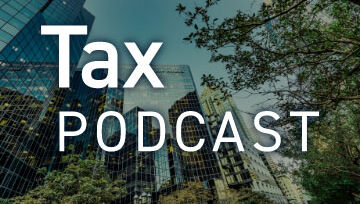On April 9, President Trump paused most reciprocal tariffs for 90 days, providing relief to beleaguered financial markets. While the reprieve was widely considered welcome news, it is temporary, and the future of United States trade policy remains in flux.
Continued Fluidity
The president invoked the International Emergency and Economic Powers Act (IEEPA) to impose the global and reciprocal tariffs, declaring the “large and persistent trade deficit” a national emergency. The IEEPA gives the president broad authority to regulate international commerce and does not require investigations or studies, allowing the president to respond to developments quickly and unilaterally.
The combination of the use of the IEEPA and the nature of Trump’s stated trade policy goals creates an inherently fluid environment. Tailoring levies to incentivize a reduction in the trade deficit is likely to lead to numerous shifts in tariff levels over the coming weeks and months, if not years.
Current Trade Policy
Here is the current state of trade policy after this week’s announcements:
- The 10% baseline global tariff remains in place.
- The reciprocal tariffs, as outlined in Trump Announces Sweeping Reciprocal Tariffs, have been paused for 90 days for all countries other than China.
- Chinese tariffs have risen to 145%.
- The 25% tariffs on steel, aluminum, vehicles, auto parts, and all Canadian and Mexican goods that are not covered under the U.S.-Mexico-Canada Agreement remain in place.
Reciprocal tariffs could return, at previous or new levels, at the end of the 90-day period, depending on how negotiations proceed. We are also anticipating potential new tariffs on imports of lumber, copper, pharmaceuticals and semiconductors in the near future. The implementation of these new tariffs is not guaranteed, but Trump has ordered studies on copper and lumber and has made public and private statements on pharmaceuticals and semiconductors.
Navigating Uncertainty
To successfully navigate this uncertain and variable economic environment, businesses must be proactive and nimble. Businesses may be wondering:
- Do we understand our supply chain alternatives and the timeline for implementing a change?
- Companies importing from China need alternative supply chain plans to reduce their geopolitical risks.
- How will changes to tariffs throughout our supply chain affect product costs?
- How do we maintain profitability in an uncertain environment?
- Is our technology positioned to access supply chain information and help us respond quickly to changes?
- How do we compare to our competitors? Do we have a competitive advantage in responding to changing prices, or are we at a disadvantage?
- Have we appropriately diversified sourcing?
- Are our supply chain contracts ready for deployment into our top alternative jurisdictions?
- Do we have a strawman legal operating structure and strategy that can be quickly tailored and executed upon deciding to enter into a new country?
- How strong is our logistics planning?
- Should we diversify our customer base?
An uncertain and variable economic environment will test business agility. Businesses that can adapt quickly are more likely to have positive economic outcomes.
How Cherry Bekaert Can Help
To help businesses ensure they’re able to respond to fluctuations in trade policy, Cherry Bekaert is advising clients on the following topics:
Onshoring and Reshoring of Manufacturing Facilities
Building manufacturing facilities in the United States can help with stability and predictability. In some industries, onshoring or reshoring may reduce costs, simplify logistics, and offer financial and tax incentives. A detailed analysis of initial and ongoing operating costs can help businesses determine which options to pursue. Cherry Bekaert advisors can help with analysis of and planning in this area.
Profitability (Re)work and Analysis
Changes in supply chains can force changes in distribution, pricing and profitability. We assist clients in upgrading their digital reporting systems to ensure they’re working with the most relevant operating information. We also conduct price elasticity analyses based on new costs and other inputs.
International Tax and Transfer Pricing
Changes to an office, distribution facility, manufacturing location or other critical business component can trigger changes in an organization’s international tax structure. A transfer pricing study can help a multinational enterprise properly price their inter-company transactions.
Foreign Trade Zones
Foreign Trade Zones (FTZs) are designated areas that allow for delayed or reduced duties on imported products. FTZs allow taxpayers to:
- Avoid paying tariffs on imported products that are later re-exported.
- Delay the payment of duties on products that are sold in the U.S.
- Potentially reduce tariff rates on finished products.
- Eliminate imposed duties on scrap from manufacturing processes.
- Simplify the customs process.
Negotiated Local, State and Federal Incentives
Site selection can have significant implications for businesses, from start-up or ongoing costs, incentives, supply chain, labor, and overall tax burden. Our team assists businesses with evaluating the total costs and benefits of their options, helping to optimize the full picture.
Port Incentives
Some states and municipalities offer incentives for increases in port activities. Our team helps clients evaluate the benefits associated with changes to import and/or export activity.
Corporate Development and Strategy
Mergers and acquisitions (M&A) or other cooperative structures, such as joint ventures, can help with supplier diversification to minimize import duties, as well as help expand distribution and consumer bases. We assist our clients with analyzing strategic channels, optimizing capital structure and competitor synergy/acquisition targeting work. We also guide clients through critical decisions when responding to supply changes such as pricing strategy, the effects of competition and customer value studies.
Build America Buy America (BABA) Certification
As manufacturing and accompanying material suppliers move into the United States to avoid tariffs, clients may achieve the 65% BABA certification domestic content threshold. BABA certification is mandatory for the Federal government contracting supply chain, provides preferential treatment in other competitive situations, and provides the potential for federal, state and local financial assistance for certain infrastructure projects. We assist clients with certifications to provide to customers and other compliance requests.
Your Guide Forward
As international trade policy continues to evolve, Cherry Bekaert’s Tax Policy, International Tax and industry teams will continue to bring you the latest updates and insights.







